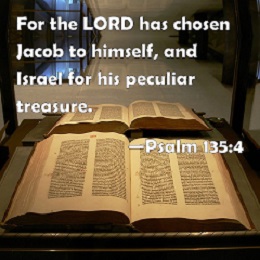2043AFC102320 – Being Good in the Neighborhood
Read it online here, please. And please, when you visit there, use one of the social media links at the bottom of the page to share this post. Thank you! And remember, we now have a READER VIEW available, so share this link or this email often.
 Matthew 22:34-40 – 34 When the Pharisees heard that he had silenced the Sadducees, they gathered together, 35 and one of them, a lawyer, asked him a question to test him. 36 “Teacher, which commandment in the law is the greatest?” 37 He said to him, “‘You shall love the Lord your God with all your heart, and with all your soul, and with all your mind.’ 38 This is the greatest and first commandment. 39 And a second is like it: ‘You shall love your neighbor as yourself.’† 40 On these two commandments hang all the law and the prophets.”
Matthew 22:34-40 – 34 When the Pharisees heard that he had silenced the Sadducees, they gathered together, 35 and one of them, a lawyer, asked him a question to test him. 36 “Teacher, which commandment in the law is the greatest?” 37 He said to him, “‘You shall love the Lord your God with all your heart, and with all your soul, and with all your mind.’ 38 This is the greatest and first commandment. 39 And a second is like it: ‘You shall love your neighbor as yourself.’† 40 On these two commandments hang all the law and the prophets.”
Leviticus 19:18 – 18 You shall not take vengeance or bear a grudge against any of your people, but you shall love your neighbor† as yourself: I am the Lord.
† לְרֵעֲךָ֖ (lə-rê-‘ă-ḵā) from רֵעַ (rea) {ray’-ah} → friend, companion, fellow resident.
Exodus 22:21 – 21 You shall not wrong or oppress a resident alien*, for you were aliens in the land of Egypt. The term resident alien is often translated as sojourner.
Sojourner is translated from a term in Hebrew – גֵּר (ger) {gare} – and it connotes the basic idea that a person or group is residing in a community and place that is not their place of origin. Such a one is dependent on the conceded rights and privileges – the “good-will’ – of that community as an accepted part of the whole. (See Oxford Biblical Studies: Sojourner) There is also question about how gēr should be translated into Greek (for example in the Septuagint), as προσήλυτος (prosélutos) {pros-ay’-loo-tos} – a proselyte, a convert required to participate and observe the laws and customs of the “adopting nation;” or as πάροικος (paroikos) {par’-oy-kos} – one who dwells in a place not of his or her origin, but – although accepted by the community – lives within the population while observing their own customs and rules of behavior within the boundaries of the local laws and customs.
This idea of treating strangers with dignity, courtesy, and respect was probably unique in the era during which the Jewish people were formed as a nation. The treatment of foreigners – outsiders – was (and is still) harsh. They are mocked, picked on, bullied, denied certain rights, shunned, ostracized, snubbed at every turn, and the butt of coarse jokes. Treating them with decency was quite a new and different idea. What can we learn about God’s purpose for such a rule? Let’s start with why God chose Israel to be his “peculiar” people.
As we know from Genesis 3:15, before the ink had even dried on our Death Warrant, God promised and provided for a Redeemer. There was much to be prepared to provide this Grace and that required waiting until the “fullness of times” (See Galatians 4:4 and Ephesians 1:10) to come. For millennia upon millennia before the coming of God’s promised Messiah, the Lord was preparing the Way for His appearance by teaching us earthlings all the Truth that would make understanding the Works and Power of the Messiah at the proper time chosen by God. God is Holy; therefore if God planned to live among sinful humanity, humanity must have a Way for being Holy as well. Rather than simply impose the orderliness required to achieve holiness, God chose to gradually install the framework for Salvation step-by-step until humanity could comprehend and implement into their own lives the framework of redemption prepared for them by God. This plan was the Way for restoration of Truth, Life, and Peace – the Peace between God and his Creation which was destroyed by sin.
We earthlings are incapable of accomplishing Peace through our own efforts. We soon discover that Peace is unattainable without including God as a partner in the covenantal Peace that reunites us with him. How could it be?
Peace cannot be achieved solely through human effort; yet, conversely, perhaps, peace cannot be achieved without God’s participation. Is it true that all we really need is Love? (← Check it out!) Yes, of course that is True. Is it true that the kind of love that supports Peace is in any way attainable through nothing more than human effort? No, that has never been the case, and – fortunately for us – never will be. It took the immense Love of God sending his own Son to us to be our Messiah, God’s Christ. It was the only way we could return to Holiness with and within God. In Christ we become part of his Chosen People, as described in these three Scripture passages: (Please use the links to compare the language of these texts)
 Deuteronomy 7:6 – 6 For you are a people holy to the Lord your God; the Lord your God has chosen you out of all the peoples on earth to be his people, his treasured possession. Some translations read “a peculiar treasure,” as in Psalm 135:4 – 4 For the Lord hath chosen Jacob unto himself, and Israel for his peculiar treasure. Authorized (King James) Version (AKJV) The meaning for “peculiar” is nothing at all like the way we think of it these day – someone or something a bit weird. It comes from another Hebrew term סְגֻלָּ֔ה (sə-ḡul-lāh) {seg-ool-law’} which means a special treasure set aside for only one person.
Deuteronomy 7:6 – 6 For you are a people holy to the Lord your God; the Lord your God has chosen you out of all the peoples on earth to be his people, his treasured possession. Some translations read “a peculiar treasure,” as in Psalm 135:4 – 4 For the Lord hath chosen Jacob unto himself, and Israel for his peculiar treasure. Authorized (King James) Version (AKJV) The meaning for “peculiar” is nothing at all like the way we think of it these day – someone or something a bit weird. It comes from another Hebrew term סְגֻלָּ֔ה (sə-ḡul-lāh) {seg-ool-law’} which means a special treasure set aside for only one person.
Deuteronomy 14:2 – 2 For you are a people holy to the Lord your God; it is you the Lord has chosen out of all the peoples on earth to be his people, his treasured** possession.
**Περιούσιον (periousion) {per-ee-oo’-see-on} of one’s own possession; costly, treasured, select, specially chosen; of abundant and surpassing value.
Titus 2:14 – 14 He it is who gave himself for us that he might redeem us from all iniquity and purify for himself a people of his own [periousion] who are zealous for good deeds.
God created Adam to be a companion in the community that is God. Through sin, Adam divided that community. God immediately implemented his plan for restoration – the reunification – of that community. For all the descendants of Adam, that plan included free will – the freedom to choose whether or not we would be merciful, and just, and walk humbly in God’s presence. We might choose hundreds, perhaps thousands, of times a day, and to help us with that choice God has given us instructions on how to be Holy:
“‘You shall love the Lord your God with all your heart, and with all your soul, and with all your mind.’ 38 This is the greatest and first commandment. 39 And a second is like it: ‘You shall love your neighbor as yourself.’† 40 On these two commandments hang all the law and the prophets.” Christ’s Law of Love is the only Way to meet the requirements of the following passages:
Leviticus 19:17-18 – 17 You shall not hate in your heart anyone of your kin; you shall reprove your neighbor, or you will incur guilt yourself. 18 You shall not take vengeance or bear a grudge against any of your people, but you shall love your neighbor as yourself: I am the Lord.
Leviticus 19:33-34 – 33 When an alien resides with you in your land, you shall not oppress the alien. 34 The alien who resides with you shall be to you as the citizen among you; you shall love the alien as yourself, for you were aliens in the land of Egypt: I am the Lord your God.
We are held responsible for treating the alien, the neighbor, the kinfolk, and the earthlings with whom we interact with dignity, courtesy, and respect; we are to Love them even if they are our enemies. Now I know some are saying, “Well, that doesn’t mean I have to like them!” Yes, I suppose that is true – we can hate the sin but love the sinner, despise the act but not the actor. We are to be separate from the World as citizens of the Kingdom, yet God requires that the Kingdom be a witness to the World so that The World will see, and perhaps even desire, a place in the Kingdom with us. That is part of being “a light to all the nations.” (See Isaiah 49:6) The Apostle Paul put it this way in Philippians 2:3 – 3 Do nothing from selfish ambition or conceit, but in humility regard others as better than yourselves. No, that doesn’t mean Christians run around perfecting their inferiority complexes. It means we suspend our selfishness and treat our neighbors – native or foreign – as beloved of God. How simple that seems as a way to be good in the neighborhood, but how difficult it becomes when we set out to employ it! Even so, there is a simple little rule by which we may succeed. We find it in Psalm 37:3 – Trust the Lord and live right! The land [your neighborhood] will be yours, and you will be safe. Contemporary English Version (CEV)
Whatever, whenever, wherever, whoever, however, if ever, forever —
at your service, Belovéd!
Please pray with us here at Share-a-Prayer.
Unless otherwise indicated, all scripture passages are from the New Revised Standard Version Catholic Edition (NRSVCE) New Revised Standard Version Bible: Catholic Edition, copyright © 1989, 1993 the Division of Christian Education of the National Council of the Churches of Christ in the United States of America. Used by permission. All rights reserved.
Biblical languages inserts from Bible Hub (Bible Hub: Search, Read, Study the Bible in Many Languages) Visit at http://biblehub.com

Aloha Friday Messages by Charles O. Todd, III is licensed under a Creative Commons Attribution-ShareAlike 3.0 Unported License










